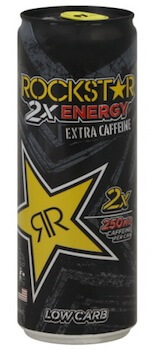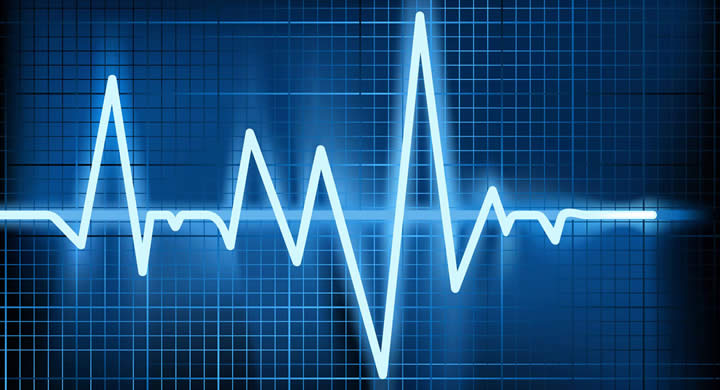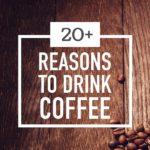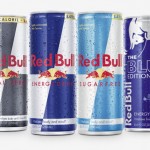Caffeine and Heart Arrhythmias (Irregular Heartbeat)
The guidelines to follow for safety
A cardiac arrhythmia is when the heart beats out of rhythm sometimes missing a beat or beating twice in the time period that usually would be one beat.
Since caffeine is a stimulant and speeds up heart rate, doctors believed that this effect could be dangerous for those with heart arrhythmias.
Doctors once warned those with cardiac arrhythmias to avoid consuming caffeine, but this advice may be somewhat outdated.
Those with existing heart arrhythmias should exercise caution when consuming caffeine, which involves understanding the amount of caffeine in beverages/ foods as well as the amount they are consuming daily.
Some people do report that their heart “flutters” after drinking caffeinated beverages and are understandably concerned about this.
Moderate Caffeine Ok for those with Arrhythmias
The Arrhythmia Research:
1.The most up to date research published in the January 2016 edition of the Journal of the American Heart Association found that among regular coffee, tea, and chocolate consumers studied there was no increased instance of heart rate rhythm abnormalities compared to the study group that did not consume coffee, tea, and chocolate regularly.
You can read more about the study here.
2. An article published in The American Journal of Medicine shows that caffeine in moderation seems safe.
After reviewing all of the studies published concerning caffeine consumption among those with known arrhythmias, Daniel J. Pelchovitz, MD and Jeffrey J. Goldberger, MD concluded that moderate doses of caffeine are well tolerated by most people diagnosed with cardiac arrhythmias.
3. Kaiser Permanente Division of Research in Oakland, CA recently conducted a study in which the coffee-drinking habits of 130,054 men and women were assessed along with their medical history.
The research showed that those who had 4 or more cups of coffee a day (400mg of caffeine or more) had an 18% lower risk of being hospitalized because of heart rhythm disturbances while those that consumed at least 1-3 cups had a 7% lower risk.
The head researcher, Arthur Klatsky MD, says:
“While other factors could have been involved here and that this study doesn’t prove that coffee has a protective effect, it does however, show that coffee drinkers are not harming themselves from drinking the caffeine or increasing their risk of hospitalization due to heart rhythm problems.”
4. A Danish study also looked at coffee’s relationship to heart beat fluttering. After assessing almost 950 patients, they concluded that coffee consumption was not associated with risk of heart flutter.
5. Another study which was a meta-analysis of four other studies that looked for a link between coffee consumption and atrial fibrillation risk found that there was no association between coffee or caffeine consumption and increased risk of developing atrial fibrillation.
This is all good news for those who love coffee and/or energy drinks but have known heart arrhythmias. It looks like they can a have caffeine-laden beverages in moderation and still be safe.
A moderate daily dose of caffeine for a healthy adult is between 300-400mg.
Most doctors advise patients with arrhythmias to quit or cut back on their caffeine consumption.
Energy Drinks and Heart Rhythm Problems
 Unfortunately for energy drink consumers, most of the caffeine and heart rhythm research conducted looked at coffee as the caffeine delivery method.
Unfortunately for energy drink consumers, most of the caffeine and heart rhythm research conducted looked at coffee as the caffeine delivery method.
We know from other studies that coffee is naturally high in antioxidants, which are believed to be beneficial in protecting bodily organs from disease.
Energy Drinks do not offer the same benefit and the results could be different with this caffeine delivery agent. Especially since many energy drinks are a combination of caffeine, taurine, sugar and sometimes other stimulants.
People with existing heart arrhythmias should be extremely cautious when using these products.
Excessive Caffeine May Be Deadly
For those with heart arrhythmias, excessive caffeine may be deadly. To date, there have been several reported deaths as the result of caffeine overdose in those with heart arrhythmias.
Some reported caffeine deaths of those with arrhythmias.
- Anais Fournier died after just 480mg of caffeine.
- A New Zealand woman died after 900-1000mg of caffeine daily.
- Alex Morris died from reportedly drinking 320mg of caffeine though Monster Energy Drink.
- A 25-year-old woman died after consuming a guarana based drink. Src.
It is vital that people know their heart health and respect caffeine as it can be deadly for people with arrhythmias under certain circumstances.
Caffeine Doesn’t Cause Arrhythmias to Develop
There is no scientific evidence that caffeine causes heart arrhythmias in those with a healthy heart.
Nor is there any evidence that drinking caffeinated beverages long-term will cause an arrhythmia to develop.
However, some people could be unaware that they have an arrhythmia or that they are prone to developing one based on their genetics, which is why caffeine should always be consumed in moderation.
Binging on caffeine, even once, can have dangerous consequences.
We encourage caffeine in moderation and especially in cases where people have heart arrhythmias. If you have an arrhythmia, we encourage you to use all of the tools this site has to offer to help you consume caffeine safely.

Get Help Quitting Caffeine
Reduce your caffeine intake without pain and discomfort.
Download our FREE ebookReferences
- Pelchovitz, D. J., & Goldberger, J. J. (2011). Caffeine and cardiac arrhythmias: a review of the evidence. The American journal of medicine, 124(4), 284-289.
- Klatsky, A. L., Hasan, A. S., Armstrong, M. A., Udaltsova, N., & Morton, C. (2011). Coffee, caffeine, and risk of hospitalization for arrhythmias. The Permanente Journal, 15(3), 19.
- Frost, L., & Vestergaard, P. (2005). Caffeine and risk of atrial fibrillation or flutter: the Danish Diet, Cancer, and Health Study. The American journal of clinical nutrition, 81(3), 578-582.
- Larsson, S. C., Drca, N., Jensen-Urstad, M., & Wolk, A. (2015). Coffee consumption is not associated with increased risk of atrial fibrillation: results from two prospective cohorts and a meta-analysis. BMC medicine, 13(1), 207.
- Consumption of Caffeinated Products and Cardiac Ectopy, Shalini Dixit, Phyllis K. Stein, Thomas A. Dewland, Jonathan W. Dukes, Eric Vittinghoff, Susan R. Heckbert, and Gregory M. Marcus J Am Heart Assoc. 2016;5:e002503, originally published January 26, 2016, doi:10.1161/JAHA.115.002503






